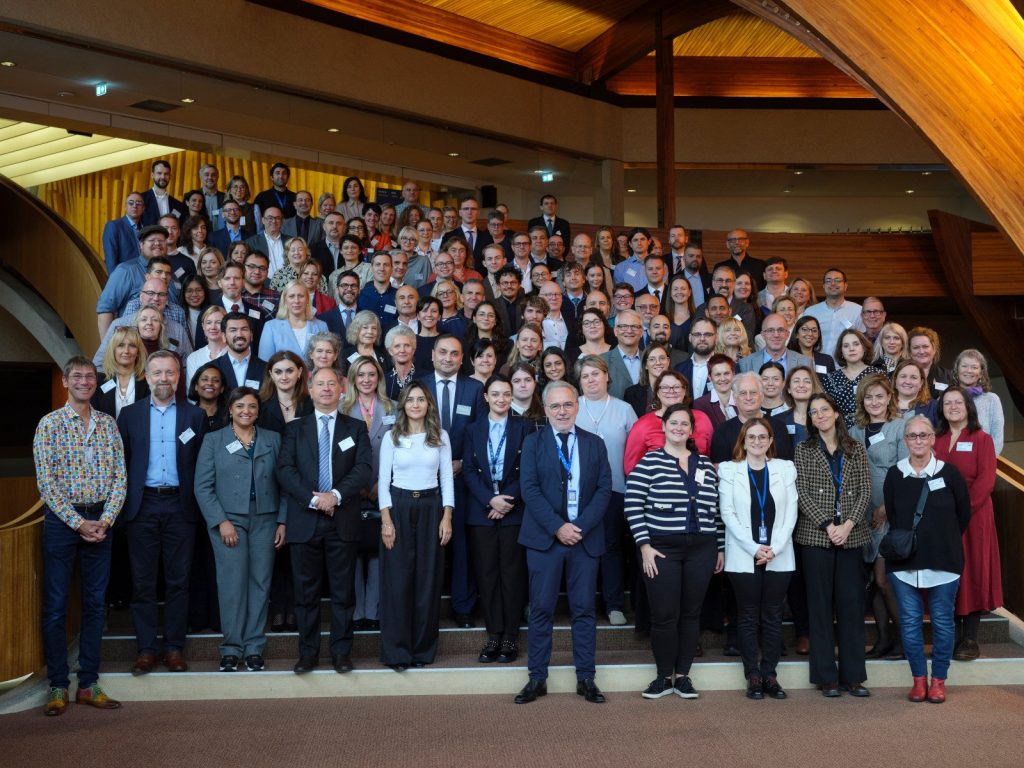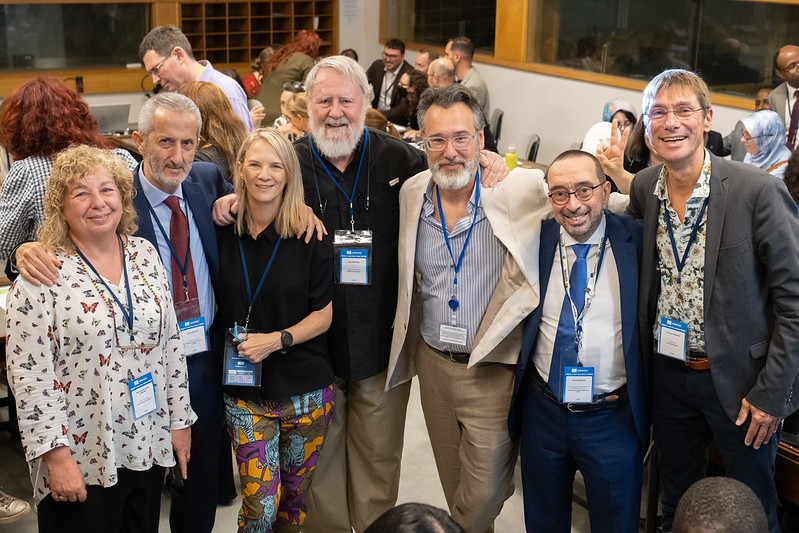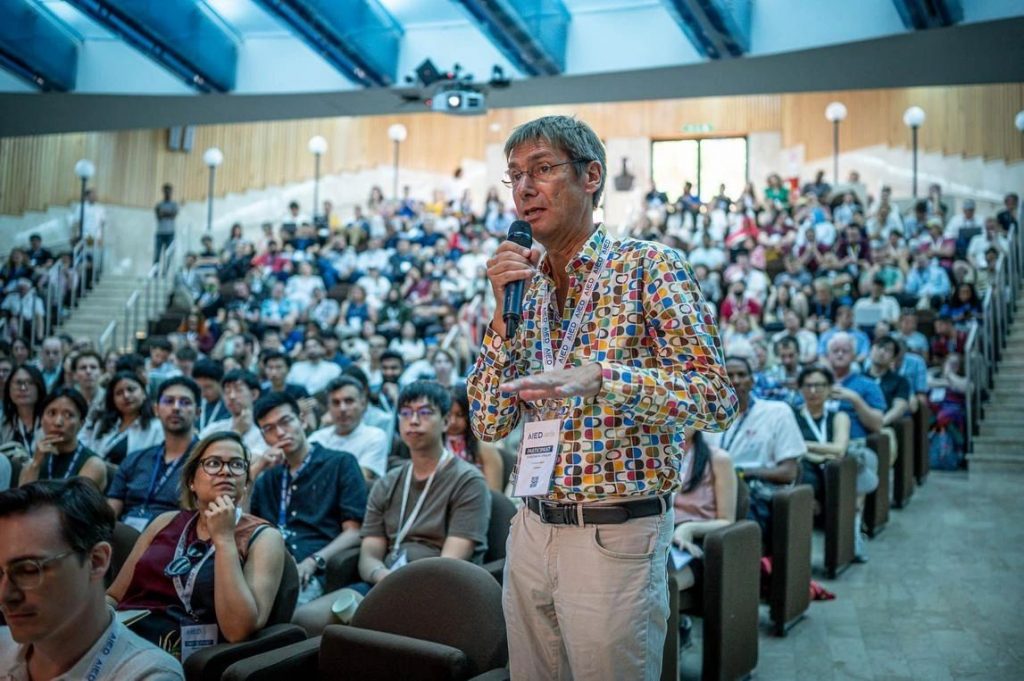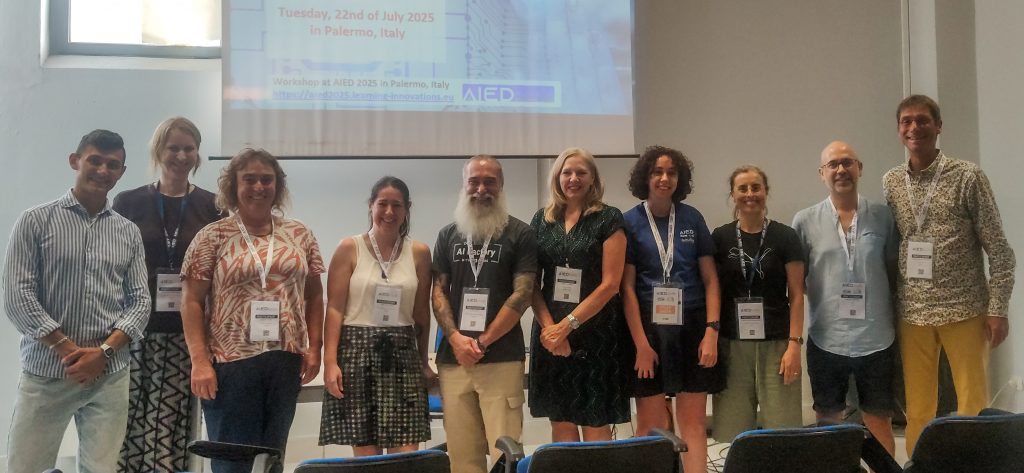Three years are passed since the free publication of ChatGPT on 30th of November 2022 and it seems that the whole world fundamentally changed since then.
As you know, I’m a passionate promoter of Open Education as a broad philosophy for learning innovations. And I strongly believe in the power and impact of quality education.
Therefore, I’m wondering how it is affected and challenged by Artificial Intelligence (AI).
Let me share my hopes and concerns with you and tell me your opinion on them:
First, there was huge scepticism and even fighting against AI – in education as well as in general public discussions: Many people reacted negatively in fear of future dangers.
A development stop highlighting the AI power and potential threats for the society was demanded by some commercial AI providers – to improve own progress and benefits.
In contrast, the AI use was strongly increasing, in particular in 2025, leading to a shift in the debates by international enterprises, lobby organisations and public authorities.
Today, there is more an AI hype with promises for everything and all sectors while AI regulation is considered as hindering innovation and unique opportunities.
But just the contrary is true: AI regulation is helpful and beneficial because it facilitates the safe and trustworthy AI use and sets guardrails for all parties and stakeholders.
And in the special sector education, we urgently need AI regulation to safeguard our human rights, democracy, and societal learning objectives and equality! You can read my full argumentation here: https://doi.org/10.1007/978-981-97-8638-1_7
Currently, we are starting experimentations with children without any proven evidence from scientific research that AI use in education is causing positive effects.
Definitely, we need to address AI in education but first of all, we require education about AI to facilitate critical reflections and building of AI competences and AI literacy.
I’m looking forward to a better future through Open Quality Education including AI use in innovative learning processes for All and to our close collaboration for realising it!
Now, I’m very curious about your personal opinions and changes:
What do you think about it and what happened to you during the last three years?
Please share your thoughts with me and let us keep the contact!



